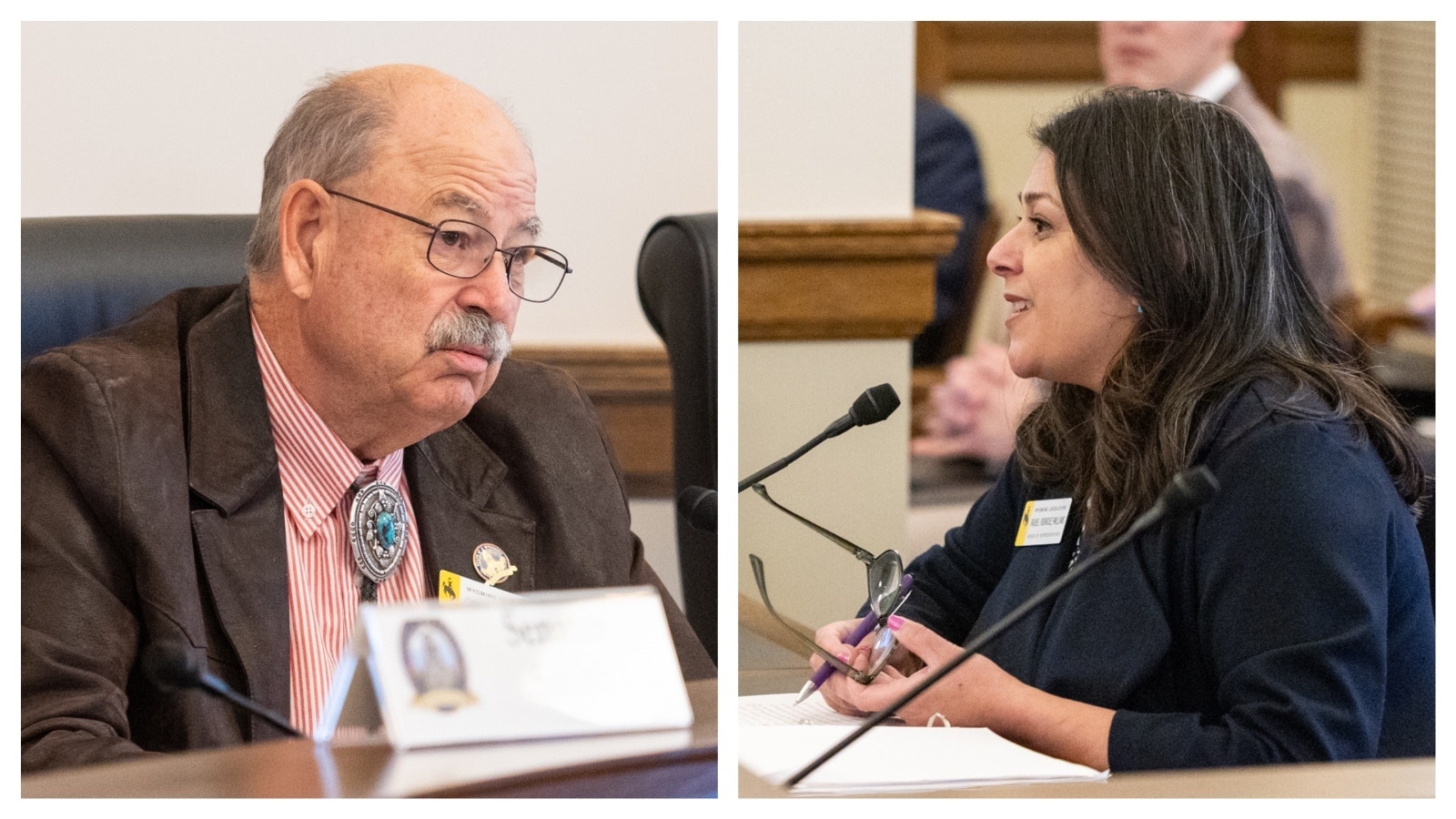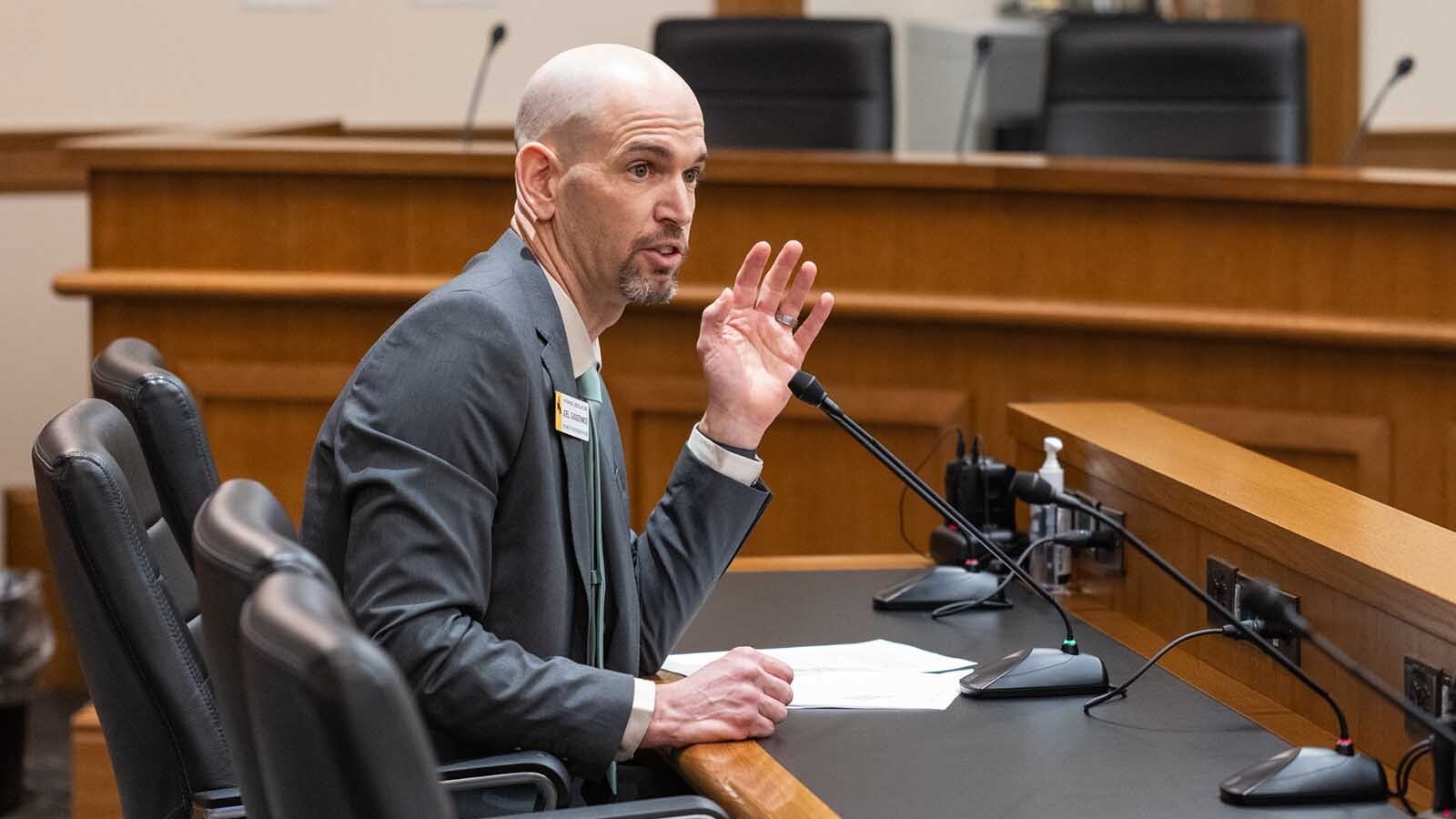Explicit content: This story contains images depicting mature subject matter. Cowboy State Daily gently blurred nude images, but in the original books they are generally uncensored. Read at your own discretion.
By the time the four trustees elected Tuesday to the Natrona County School Board begin their service, the fate of two sexually-graphic books in a Casper school will already be decided.
Mary Schmidt, Jenifer Hopkins, Michael Stedillie and Kevin Christopherson all won their bids for election to the school board in Tuesday’s general election. They replace trustees Kianna Smith and Debbie McCullar, both incumbents who ran for reelection, and Clark Jensen and Dave Applegate, who did not run.
Schmidt and Hopkins declared their candidacy together and seek to rid the schools of sexually-graphic books.
Christopherson is a former board member who chose not to run for reelection during the COVID months, after receiving backlash for opposing shutdowns and mask mandates and what he described as fearful messaging.
Stedillie is a longtime Casper teacher who is now retired.

‘Social Engineering’
For Hopkins and Schmidt, combatting “pornography” in the district’s schools is paramount.
The school board is scheduled by the end of November to decide whether to keep or discard “Trans Bodies, Trans Selves” and “Gender Queer,” both sexually-graphic books that have already survived one challenge and remain in the Kelly Walsh High School library for now.
The Natrona County Library also contains “Gender Queer.”
Schmidt told Cowboy State Daily her “immediate plan” is to learn more about what sort of “social engineering” impetus could have driven the school to buy the books in the first place, and to combat that. She theorized that federally-funded social-emotional learning programs are driving political or sexual “social engineering.”
Congress in 2019 poured $260 million into social-emotional learning. Advocates touted it as a means for children’s holistic wellbeing beyond simple educational tenets; detractors feared it would inflate tenuous concepts of happiness, self-esteem and inclusivity at the expense of ethics and virtue.
“We need to start breaking away from that (program) and start getting back to the general focus of school, which is academics,” said Schmidt, adding that she would like to get input from teachers on how to proceed.
Books And Masks
Hopkins said she ran for the school board because of the sexually-graphic books controversy and because she felt the school’s COVID-19 policies were ushered in with too little transparency.
“We always seem to find out what’s going on after the fact,” she said.
Hopkins has one of her six children attending school in the district; Schmidt has three of her five children in the district. Both are also homeschool moms.
Hopkins said she disagreed with the district’s mask mandate during the COVID months.
She also said the current board has been making improvements regarding the controversial books.
At an October board meeting, Applegate proposed a rating system for school materials that would address both violence and pornography.
Schmidt and Hopkins declared their school board candidacy together along with Renea Redding, who was not elected.
Restructure
Schmidt said she has many plans to improve the district that go beyond book and mask controversies.
She hopes to implement more fluid literacy programs in kindergarten through third grade so students can learn at their own pace without feeling stigmatized. She also said she’d like to see the four-year high school program condensed into two years of intensive core-subject learning, after which students could choose vocational or college-preparatory courses for the latter two years, or they could graduate early and enter the workforce.
These plans, said Schmidt, have occurred to her after studying her own children’s homeschool performance.
She said the district contains a lot of “talent” and she would like to see teachers work together to develop their own curricula. This, said Schmidt, could distance the district from sweeping federal directives, help the schools respond to local economic and social needs and use teachers’ on-the-ground expertise.
Hopkins said she would like to confront the district’s relatively low test scores in the state by emphasizing phonics in the early grades.
Other changes, Hopkins said, she’ll navigate as she learns “the whole picture.”
‘Don’t Leave Us’
Schmidt said she hopes parents stay involved even as hot-button issues wane or change.
“I hope and pray that the parents all across the state that have been attending school board meetings and have voted for new school board candidates, that they don’t stop,” she said. “You still have to be at the school board meetings demanding your voice be heard. So please don’t leave us.”
Name Recognition
Stedillie received the most votes of any candidate, with 8,111 compared with Hopkins’ 6,150, Christopherson’s 5,939 and Schmidt’s 5,877.
He said he wasn’t sure why he connected so well with voters, but noted that he may have benefitted from name-recognition after his 48-year teaching career.
Stedillie said he ran for the board seat because he saw it as another way to serve students. He has grandchildren attending school in the district, he said.

Contested Books Have Some ‘Value’
Stedillie did not say whether as a board member he’d vote to get the challenged books out of the high school, but said that both books taken as a whole have “redeeming social value” as resources for students.
He described “Trans Bodies, Trans Selves” as having particular educational value.
“I do not find that the book promotes any particular agenda,” he said. “I find it as a resource book that will answer questions people have about issues surrounding the trans phenomena.”
Stedillie emphasized that when facing book-challenge appeals, board members should review books in their entirety and balance their discomfort toward certain parts against their overall value.
He also lauded the district’s book-challenge policy, which appoints a separate committee to review books initially to determine whether they should remain on school shelves. The school board can adopt or reject the reconsideration committee’s decision if community members file an appeal.
Stedillie said he doesn’t have a concrete plan on how to improve the district, but wants to do the work necessary to help everyone work together to improve education.
Local Control
Kevin Christopherson was on the board for eight years before COVID made education a controversial realm.
“I just needed a break, so I didn’t run two years ago,” he said.
Christopherson said that he wasn’t the only school board member who was critical of Gov. Mark Gordon’s public health and school-district mandates, but he was the only one who was outspoken about it.
“Just the psychological effect of having to wear a mask for a year and being out of school, and being told you have to be afraid of everybody else and they’re going to kill you … there’s been a lot of damage done,” said Christopherson. “I personally know kids who haven’t made it back to school yet: they’re doing virtual learning because they’re afraid.”
He said it was disheartening to be on the board during the pandemic because its local control vanished during the shutdown, and because he felt he was “vilified in the press” and the community for his opposition.
‘Less Than 1%’
Christopherson said that as a Christian, he opposes “pornography” and would have voted against keeping the two contested books.
But he said he wants to warn the community and other board newcomers that that issue represents “less than 1%” of trustees’ work.
He also feared even the enactment of an anti-pornography policy wouldn’t change much in children’s lives because of their exposure to smartphones.
“That’s a hot-button issue that’s gotten some people elected,” said Christopherson. “A school board job is huge; there’s so many things you have to get on there – budgets, curricula … it’s a very complicated, time-consuming position.”
He said his goal in the upcoming term is to inspire people to work together to manage the district’s budget and improve its students’ educational outcomes.





